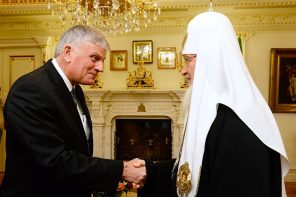By far my favorite of the so-called “New Atheists,” Christopher Hitchens died yesterday after an extended battle with cancer. He didn’t always have the best arguments, and he was arguably the most vitriolic in his anti-religious rhetoric, but I was always left with the sense that behind his pugilism was a man who authentically cared about the true and the good.
His attacks on religion were, no doubt, characterized by inexcusable rhetorical excess. By locating only what was poisonous under the heading of religion—while backpedalling fiercely to argue that Martin Luther King and Dietrich Bonhoeffer weren’t really religious at all—he made his claim that “religion poisons everything” trivially easy to defend. Even so, his assault expressed an important truth: In the religions of the world there is much that’s poisonous.
And that’s why he did it. Not because he hated God (although he called himself an antitheist) but because he loved the good so much he was driven to hyperbole in its defense.
And this is why I cannot agree with a statement made earlier today by Douglas Wilson—Hitchens’ conservative Christian debating partner and friend—in his otherwise sympathetic reflection on Hitchens in Christianity Today. “We have no indication,” Wilson writes, “that Christopher ever called on the Lord before he died, and if he did not, then Scriptures plainly teach that he is lost forever.”
Against this invocation of conservative dogma I cannot help but juxtapose the words of an earlier iconoclastic writer, the French mystic and philosopher Simone Weil: “…one can never wrestle enough with God if one does so out of pure regard for the truth. Christ likes us to prefer truth to him because, before being Christ, he is truth. If one turns aside from him to go towards the truth, one will not go far before falling into his arms.”
Those who, like Hitchens, are devoted to the true and the good are, by implication, oriented towards anything that could rightly be called God. And so, if there is a deity waiting on the other side of death, I cannot but believe that Hitchens is even now stumbling in surprised wonder into those arms.




